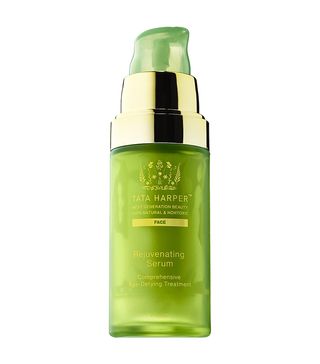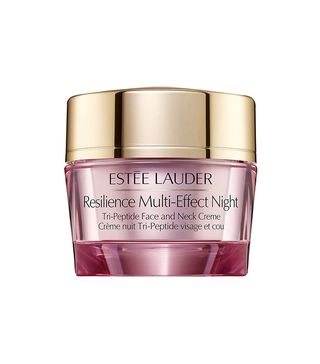The Holy-Grail Ingredient That Could Change Your Skincare Routine
In the last couple of months, as I've started writing about beauty and skincare, researching products, and interviewing dermatologists, I've noticed one word, in particular, popping up quite often: peptides. I had a general idea that they were good for the skin. I mean, they're found in a lot of highly recommended skincare products, from creams to serums. But I didn't fully understand what they were and why they're beneficial to skin health.
I knew it had something to do with chemistry, which made me feel a little intimidated. I honestly thought after high school I'd never have to deal with chemistry again. There's a reason I became a writer and editor versus a doctor or scientist. But I am a journalist, and part of being one is gaining a full understanding of the subject you're covering. So this is how I ended up getting a chemistry lesson 13 years after graduating high school. Here's what I learned about peptides.
What Are Peptides?

Peptides are short chains of amino acids that serve as building blocks for proteins, like collagen, elastin, and keratin. "When applied topically to the skin, peptides act as little messengers, triggering skin cells to perform specific functions such as building collagen and elastin, reducing inflammation, and locking in skin hydration," explains Robyn Gmyrek, MD, a board-certified dermatologist at Park View Laser Dermatology. "What is so fascinating about peptides is that they are comprised of up to 50 amino acids, and if you mix and match them in different sequences, then you can create a variety of peptides, each of which might have a different biologic effect. Peptides are so valuable because they are formulated into small enough pieces that they can penetrate through the stratum corneum—the outermost layer of the skin. Once they are able to get to the cellular level, they can exert their activity. This is in contrast to complete (not fragmented) proteins like collagen, for example, which is too large to be absorbed through the skin."
How Do Peptides Work in Skincare?
Gmyrek says there are four main peptides in skincare:
Carrier peptides: These deliver trace minerals to the skin to boost collagen production.
Enzyme inhibitor peptides: These work to slow down the skin's natural breakdown of collagen and elastin.
Signal peptides: They send messages to different parts of the skin to promote the formation and production of collagen, elastin, and other proteins.
Neurotransmitter peptides: They block the release of chemicals that cause the muscle contraction of expression lines. "These are much weaker than but work in a similar way to botulinum toxins to weaken the movement of the facial muscles so that expression lines are both improved and prevented. The most common neurotransmitter peptide that I see incorporated into skincare products is called Argireline, which is the brand name for a particular peptide, acetyl hexapeptide," Gmyrek says.
Can Everyone Use Peptides?

"It depends on skin concerns, but in general, peptides can have a wide application especially for anti-aging and sensitive skin," says Jenny Liu, a board-certified dermatologist based in Minneapolis.
They're good for all skin types, but you should keep your specific skincare needs in mind when looking at different product formulas. "Opt for a moisturizing formulation with hyaluronic acid, glycerine, or ceramide that is alcohol-free if you have dry skin," Gmyrek suggests. "I would recommend a serum or a lotion that is lighter if you have oily or acne-prone skin."
How to Incorporate Peptides Into Your Skincare Routine

"I feel strongly that you should not be layering on different products unless they were formulated and studied by the company that way. Many of these ingredients are unstable and are altered and rendered inactive by other chemicals," Gmyrek says. "So, use as directed and do not layer other products with active ingredients on top. Moisturizers are generally fine to layer, but even they can dilute the first product by combining it. If you need more moisture, try to find a very moisturizing product that contains peptides instead of layering."
Another option is to use combination products. Liu says most peptides are commonly incorporated into serums and moisturizers. These products can contain peptides and other ingredients like antioxidants or retinoids. Gmyrek adds that the products are presumably evaluated by the manufacturers to ensure that the combination of active ingredients remains.
While they can have a variety of benefits, Gmyrek says that these are some common skin conditions that can be treated with peptides:
Skin aging: "Peptides can message fibroblasts, cells in the skin that produce collagen, to increase production of collagen," Gmyrek explains. "They can decrease the breakdown of collagen and elastin in the skin. They can weaken muscle contraction, smoothing dynamic wrinkles caused by strong facial expressions."
Dryness: Peptides increase hydration and improve the skin barrier, helping it lock in moisture. With a better skin barrier, there is more protection against bacteria, UV rays, pollution, and other toxins.
Acne: They are able to kill bacteria, which we know is helpful when it comes to acne.

Liu says it's usually recommended to use the peptide product once or twice daily, and she notes that potential irritation or dermatitis is rare but possible, so make sure you test first. If you experience any redness, irritation, or another reaction, stop using the product immediately. And overall, it's important to follow the instructions for the specific product.
How to Shop for Products With Peptides
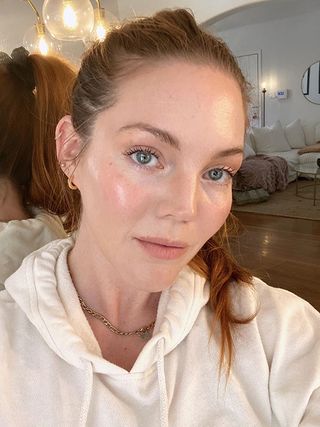
You might want to check with your dermatologist before purchasing. "As peptides are more novel and their size impacts penetration, I recommend seeing your dermatologist and purchasing medical-/professional-grade products that have been studied clinically for efficacy," Liu advises.
And be wary of any skincare promises. "Honestly, it is very difficult to know what you are getting in these products. While peptides have the ability to do all of the different things I mentioned above, it does not mean that any product that contains a peptide or peptide complex will be actually be effective or biologically active," Gmyrek explains. "In addition, there is no percentage of peptide or pH of the product that you should look for to assure that the product is active, so the best you can do is look for a listing of peptide high up in the ingredient list to assure that the product contains it, and I recommend consulting the company websites for their data on effectiveness."
Since more research needs to be done on the effectiveness of different peptides in products, Gmyrek recommends choosing products that contain other active ingredients that have proven to be effective, such as antioxidants, alpha hydroxy acids, and retinoids.
Take a look at some recommendations from Gmyrek, Liu, and our editors below:
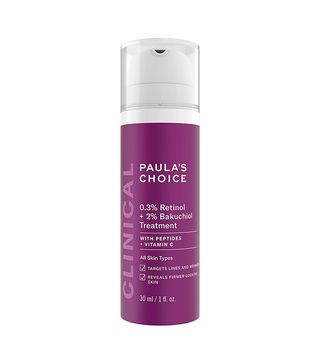
"It contains retinoid (vitamin A), bakuchiol (not a retinoid but acts on the retinoid receptors in a similar way to produce collagen and is less irritating), vitamin C (antioxidant), and palmitoyl oligopeptide (peptide), which is listed fairly high on the ingredient list," Gmyrek says. "This product also contains glycerin and ceramides, which are moisturizing and hydrating to the skin."
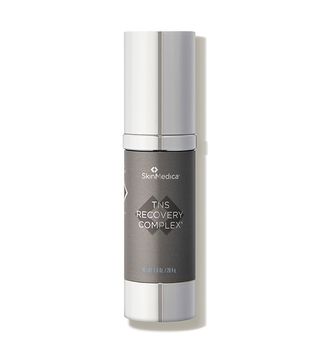
Liu recommends this serum for anti-aging uses. It has ingredients that reduce inflammation, promote cell growth, and leave your skin glowy.
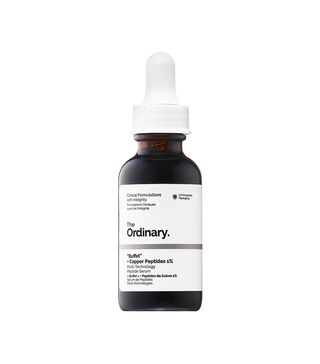
This lightweight serum contains copper peptides, which support collagen synthesis and anti-inflammatory responses. Other peptides like Matrixyl work to target wrinkles and fine lines.
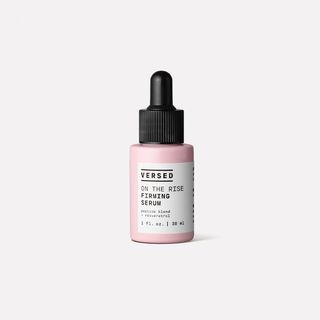
Along with a peptide blend, this serum contains powerful antioxidants like vitamin C and resveratrol to boost collagen production and smooth the skin. Apply two to three drops to clean skin in the morning and/or at night.
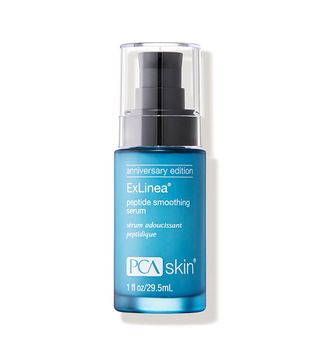
Use this spot treatment on areas where you're seeing fine lines and wrinkles. Ingredients include hydrating hyaluronic acid, protective vitamin E, and peptides.
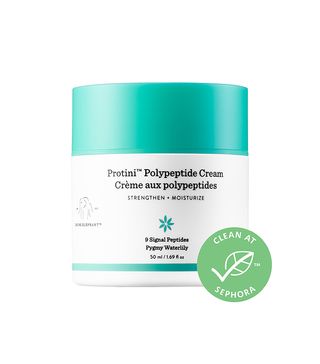
This is one of my favorite creams because it leaves my skin so smooth, firm, and refreshed. I like using it at night after washing my face. It contains signal peptides, pygmy waterlily stem cell extract (a source of antioxidants), and soybean folic acid ferment extract (vitamin B).
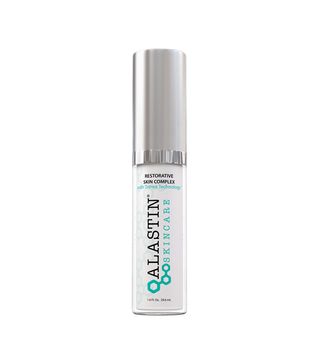
This is another recommendation from Liu, who says you can use it for anti-aging concerns. It works to improve elasticity and reduce redness, discoloration, and the appearance of fine lines and wrinkles.
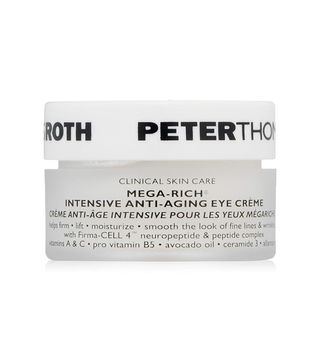
"It contains a proprietary blend of four different peptides including Syn-Coll, etrapeptide-3, oligopeptide, and the neuropeptide Argireline (hexapeptide)," Gmyrek says. "This product also contains retinol (vitamin A), known to stimulate collagen and elastic tissue, and includes glycerin and lactic acid as humectants, providing moisture."
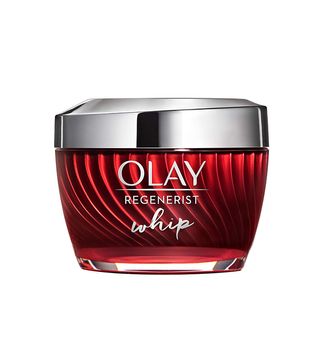
This lightweight moisturizer is formulated with an amino-peptide complex to improve skin elasticity and firmness. And since the formula is so light—hence the name Whip—it absorbs quickly and doesn't leave a greasy feeling.
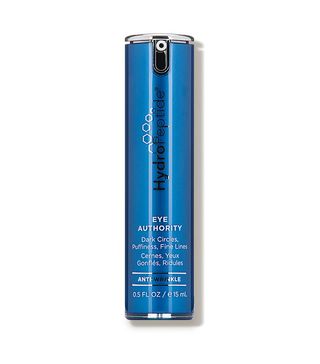
Packed with 13 peptides, crushed pearls, and hyaluronic acid, this eye cream targets wrinkles, lines, dark circles, and puffiness. It's also free of gluten, fragrances, parabens, phthalates, and sulfates.
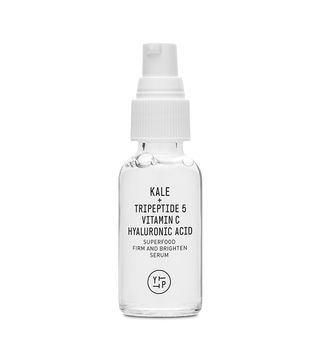
Use this clean serum to plump, smooth, and brighten skin. Ingredients include a peptide complex, antioxidants, vitamin C, and hyaluronic acid. It's recommended to apply this in the morning and at night.
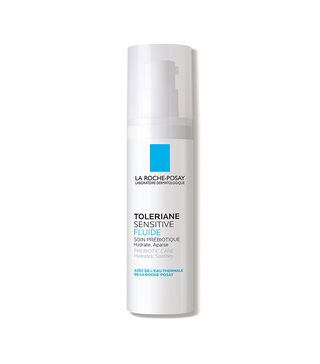
Liu recommends La Roche-Posay's Toleriane line since it's formulated with neurosensine, a peptide that is used to combat inflammation. She says the products are especially helpful for sensitive, eczema-prone skin.
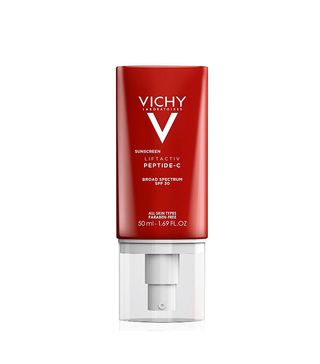
"It contains peptides, vitamin C (an antioxidant), and a broad-spectrum SPF 30 sunscreen and is moisturizing. This way, if you are using it in the daytime, you do not have to layer products!" Gmyrek says.
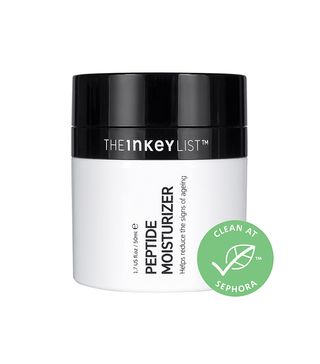
The Inkey List is Sephora's latest affordable line, and it doesn't disappoint. Its moisturizer contains a peptide duo that hydrates and supports collagen.
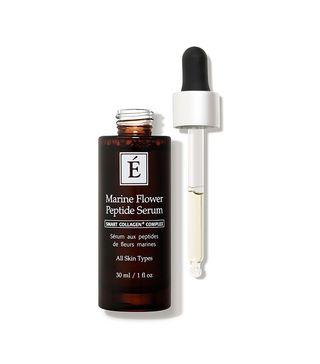
With a collagen complex, botanical peptides, blue-green algae extract, and red algae extract, this serum works to diminish the appearance of fine lines and wrinkles, smooth skin, and hydrate.
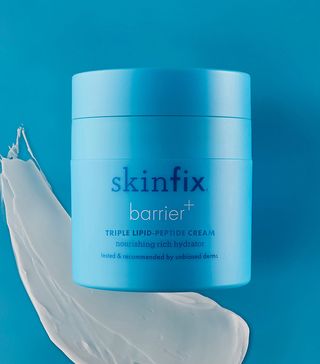
SkinFix's super-rich cream contains lipids, a peptide-protein blend, and lily root extract, which leaves skin looking firm, hydrated, and smooth. It's recommended to use it in the morning and at night on the face and neck.
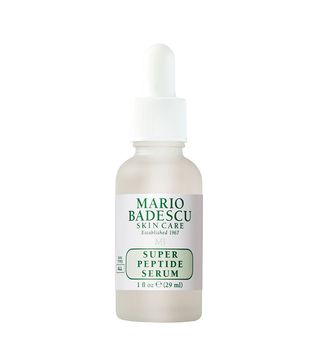
Apply three to four drops of this serum, and you're on your way to youthful-looking skin. It contains peptides and sodium hyaluronate to diminish the signs of aging and hydrate.
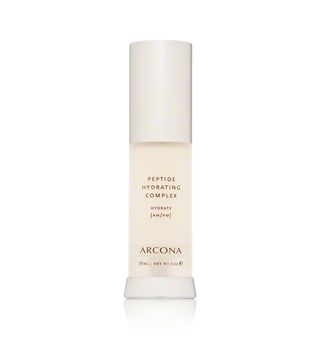
Infused with peptides and flavonoids, this anti-aging serum both firms and moisturizes skin. It works on all skin types, including sensitive.
Next up, are these beauty products really worth the price? Trust us—yes.
Sarah is lifestyle writer and editor with over 10 years of experience covering health and wellness, interior design, food, beauty, and tech. Born and raised in Los Angeles, she attended New York University and lived in New York for 12 years before returning to L.A. in 2019.
In addition to her work on THE/THIRTY and Who What Wear, she held editor roles at Apartment Therapy, Real Simple, House Beautiful, Elle Decor, and The Bump (sister site of The Knot).
She has a passion for health and wellness, but she especially loves writing about mental health. Her self-care routine consists of five things: a good workout, “me” time on the regular, an intriguing book/podcast/playlist to unwind after a long day, naps, and decorating her home.
